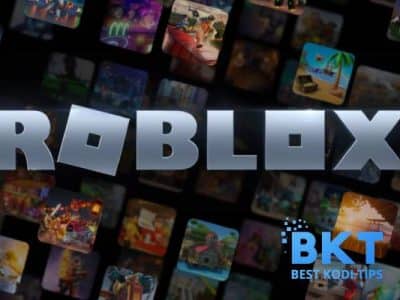The online content streaming market was virtually non-existent before Netflix made its transition to the internet. Since then, the company has continued to grow its content library, often with shows and movies produced in-house, and using big data and customer feedback to break into pretty much every country’s market.
Considering how fast its user base has grown (not to mention its profits), it was expected that it won’t be the only company active in this area for long. For a while, it had just a handful of competitors, bespoke streaming services like Amazon’s Prime Video and others attached to existing broadcast or cable services, like Hulu or HBO Go. None of them had the reach, the financial power and the media library Netflix had to offer – so none of them was a true competitor for the service.
Unfortunately, Netflix has grown very protective of its users’ experience – especially it’s content recommendation algorithms. This is one of the reasons why there is no official Kodi addon for the service to this day.
The spectacular growth of Netflix was not without effects on the global media market. With masses of consumers “cutting the cords” – transitioning to online streaming from traditional cable subscriptions – streaming became attractive for a variety of original content creators. This has resulted in the imminent emergence of a vast variety of new streaming services, each one with at least one big, attractive title to lure in as many subscribers as they can.
Disney+
Will it have a Kodi addon? Unlikely.
The Walt Disney Company is perhaps the biggest mass media company today. Over the years, it has engulfed a variety of other media providers, ranging from Fox and Marvel to ESPN and National Geographic.
Traditionally, it distributed its media products via cable channels and cinemas. With the recent shift toward streaming, it decided the time has come to have its own: Disney+, the service set to launch in the US and some other countries this fall.
Disney+ will have a very impressive initial offering, built on popular franchises like the Marvel Cinematic Universe and Star Wars. Considering the popularity of these, it will likely attract many customers to the attractively-priced service (it will cost $7.99 a month).
Disney+ plans to blast into the online video streaming market with the first live-action Star Wars series in history, “The Mandalorian”.
Apple TV+
Will it have a Kodi addon? Unknown.
Apple TV+ will be an ad-free streaming service focused on providing its users with a mass of original programming. It was an open secret that the Cupertino giant was planning its own bespoke streaming service when it optioned the rights of “The Foundation”, Isaac Asimov’s epic science fiction series. This March, Apple presented more details about the service coming this fall.
Unlike Netflix, Apple’s streaming service will only be available on Apple TV devices and its dedicated app and will focus exclusively on original content (for the time being, of course).
Before you argue that a handful of original shows will be no match for Netflix’s endless library, take a look at some of the titles Apple plans to launch via the service: Ronald D. Moore’s “For All Mankind” about a world where America loses the space race, Steven Spielberg’s “Amazing Stories” anthology, “The Morning Show” with Steve Carell, Jennifer Aniston, and Reese Witherspoon, Taika Waititi’s “Time Bandits” series, and many others that have not been announced yet (including the above-mentioned “Foundation”).
HBO Max
Will it have a Kodi addon? Unknown.
HBO has had its streaming service for the better part of the last decade – HBO Go was launched in 2010 – but it couldn’t beat Netflix at its own game. Now HBO’s parent company, WarnerMedia Entertainment, has decided to launch a brand new streaming service to compete with all of the above, filled with content from sources like HBO, the CW, Warner Bros, and BBC Studios.
Besides, it will have its “Max Originals”, with series like “Dune: The Sisterhood”, “Tokyo Vice”, and feature films like “Let Them All Talk” by Oscar-nominated director Steven Soderbergh.
The online media streaming market has massive growth potential, considering especially the unstoppable spread of connected devices. Most media companies want a slice of this massive pie, and this leads to one streaming service emerging after another. The three above were the biggest of them all – now let’s take a brief look at the others.
Viacom bought Pluto TV earlier this year, and now it plans to turn it into its own internet TV service. It won’t be a streaming service per se – the original content it will offer will be first shown on TV.
Discovery and BBC are teaming up to launch a new streaming service next year. The new service will be branded “Discovery” and will offer its subscribers access to BBC’s amazing documentaries, such as “Planet Earth” and “Blue Planet”. It will also offer brand new content, along with all the documentaries leaving BBC soon.
And there are many other companies that try to build online streaming services on their media libraries and original programming.
The dark side of the streaming explosion
There are two sides to every story – and this is not an exception. There are many major streaming services coming, all of them with their respective original series and films, pushing consumers to subscribe to one more service… and another one… and another one to follow all their favorite stories. When all the content was available through a single, accessible subscription, online movie piracy was at its minimum.
Now, several competing services will appear, and each of them will want its intellectual property back (the way Disney retracted all its Marvel properties from Netflix and so did NBC with “The Office”, and WarnerMedia did with “Friends”). Instead of one subscription, cord-cutters will have to pay half a dozen. And many of them will probably draw the line at one or two services that have most of their preferred content and simply download the rest from, um, illegitimate sources. Just like they did before.















Comments